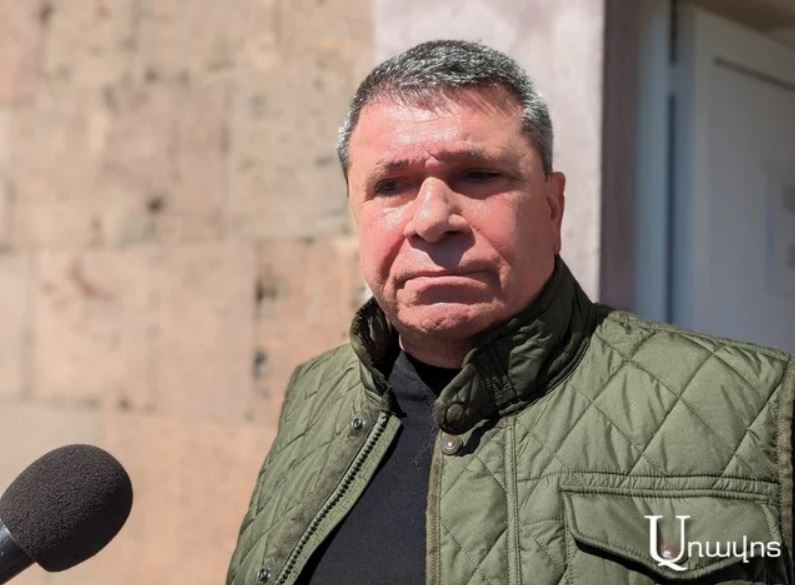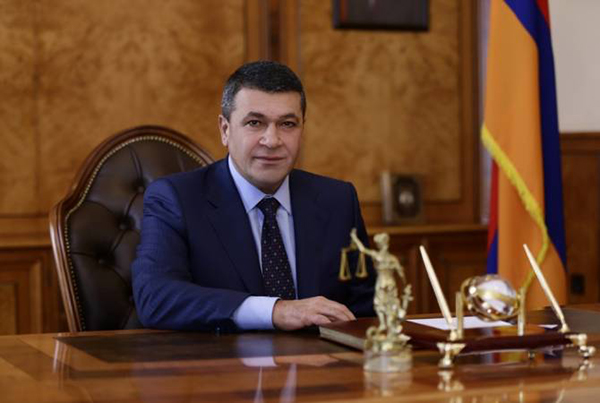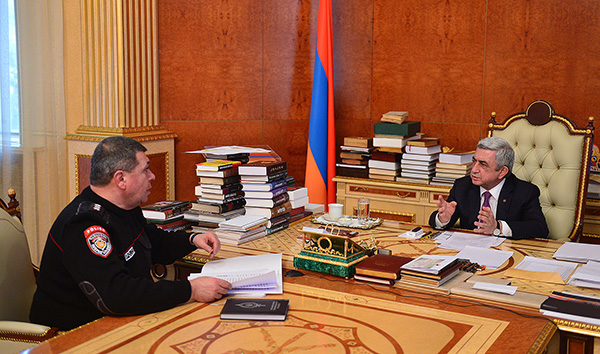Or, from spiritual needs to proselytizing
What is the religious tolerance situation in Armenia and how the ethnic and religious minorities fulfill their spiritual needs? With regard to these and other topics, we talked to representatives of the Armenian Apostolic Church, as well as other agencies and community representatives. Director of the Inter-Ecclesiastical Relations of the Mother See of Holy Etchmiadzin, Artik team leader Bishop Hovakim Manukyan thinks the Armenian Apostolic Church is one of broad-minded and ecumenically active operations conducting churches. His Grace, referring to the medieval documents, proves that the Armenian Apostolic Church has always had wide contacts with other churches. “It’s still in the process based on mutual respect and trust,” says His Grace Hovakim. According to his words, the Armenian Apostolic Church, in cooperation with its sister churches, has raised sensitive topics at the international platforms, such as, the peaceful settlement of the Syrian issue, alike and other issues were emphasized in the Geneva conferences, along with Muslim and Christian leaders. The Director of the Inter-Ecclesiastical Relations of the Mother See of Holy Etchmiadzin added that when talking about the concerns, the Armenian Apostolic Church has not separated the Armenian, in this case, Syrian Armenians, among which there are Catholic, and Protestant Armenians. The Armenian Apostolic Church has raised a voice of protest about kidnapping of Assyrian and Greek metropolitans, and Catholic nuns. “When we do not see aggression by neighboring churches to Armenian Church or a violation of rights, we treat everyone with respect. One of the examples is the close cooperation between the Armenian Catholic and Apostolic Church. They maintain their communities and collaborate for the sake of Christian solidarity. There are several other ecumenical organizations, with which we are cooperating as well, like the Armenia Charitable Round Table Foundation, and the Bible Society,” says our interlocutor. The Bishop notes that the Armenian Apostolic Church has some problems with Evangelical current neighborhood and religious trends. “We as a traditional church do not come to an agreement with them on missionary matters. They infringe on the rights of the Armenian Apostolic Church, the Christian mission should not be misused and proselytizing should not be carried out as well. In fact, there are standards and adopted agreements by the World Council of Churches and other religious organizations, which condemn proselytizing. Whereas, in general, the doors of our churches are open to everyone, and any attendant of the Armenian church does never display any intolerant attitude towards other churches if it does not worth of such an attitude.
The Armenian Apostolic Church is cooperating with Christian organizations for the sake of Christian Testimony, and with other religious institutions for the sake of peace and humanity.” As for the religious and ethnic minorities, Bishop Hovakim said, “Representatives of various nationalities live in Armenia: Assyrians, Russians, Greeks, Jews, Yezidi, etc.. We are people with the Diaspora, we have communities “outdoors”, whose rights we respect, and we respect the rights of other religions.” He brought examples of how many years ago the spiritual leader of Yezidi on his visit to Armenia was duly accepted by the Catholicos of All Armenians. Also, on several occasions, the representatives of religious minorities, Jews Head Rabi, chief mufti of Syria, and so on. The Bishop Hovakim notes that the Armenian clergymen visiting the detention facilities agrees to meet with the representatives of other religions, pray and bless them if they are willing to. “I do not see anything undue in it. In fact, when the apostles were preaching, no one was still a Christian.” Arsen Mikhailov, chairman of the “Atur” Assyrian union, in the conversation with Aravot noted that he had not come across to religious discrimination in Armenia. He recalled that the Assyrian Church of the Ancient East was officially registered in Armenia in 2003, and they encountered no obstacle in the process of registration. “A part of Assyrians are the descendants of the Russian Orthodox Church, because they had to accept Orthodoxy after the Russian-Persian war in 1828, because such an ultimatum was put forward before the Assyrians in Russian Empire. As for Armenia, we officially obtained our spiritual places, the church, since 2003. True, our churches in Asryan-populated villages in Armenia are not in quite good condition, but the government has nothing to do with it, it is the matter of our community. We have three churches in Asryan-populated villages in Armenia. We do not have any in Yerevan, should we have funds, we will have one there too,” said Mr. Mikhailov. The head of the “Midia-Shangal” Yezidi national union” NGO Amo Sharoyan also considers Armenia to be a tolerant country in terms of religion. “No policy of withdrawing heterodox was conducted in Armenia, there was no case of discrimination against religious minorities.” Despite, Mr. Sharoyan has decided to make a respective request on behalf of their organizations to the PI facility that at the request of Yezidi prisoners, they are allowed to meet with their spiritual representative. “It’s true, we didn’t have any alarms of pressure because of person’s nationality or religion, but we have encountered to something else. Kurdish prisoners are requesting through our organization not to be called “Yezidi bro” or “Yezidi” in the PI facilities, they do not want their nationalities to be emphasized. We has sent a letter about this to the Attorney General of Armenia, and have met with chief police of Armenia. I am aware that Mr. Vladimir Gasparyan had given respective instructions for such problems not to rise,” said our interlocutor. Fr. Ruben Zargaryan, Chaplain of the Prison Ministries of the Armenian Church informed that he is often meeting with heterodoxies when visiting prisons. “Romanians, Georgians, Russians… often they are asking for a blessing, also Iranians. Jehovah’s Witnesses are also periodically visited by their pastors, they are meeting in a special room. We never prevent, if they only meet their fellow-believers, but when we notice cases of proselytizing, then we raise a voice. In fact, such addiction is noticed by Jehovah’s Witnesses and evangelist, as well as the pastor of the Russian church, who had tried to preach among Armenians,” said Fr. Reuben. As formulated by the head of the “Center for Aid and Rehabilitation to the Victims of Destructive Cults” NGO Alexander Amaryan, “There is no law in Armenia that bans the activities of religious organizations. They are free, they do what they want. And only those who want to get grants are making noise.”
Gohar HAKOBYAN
























































